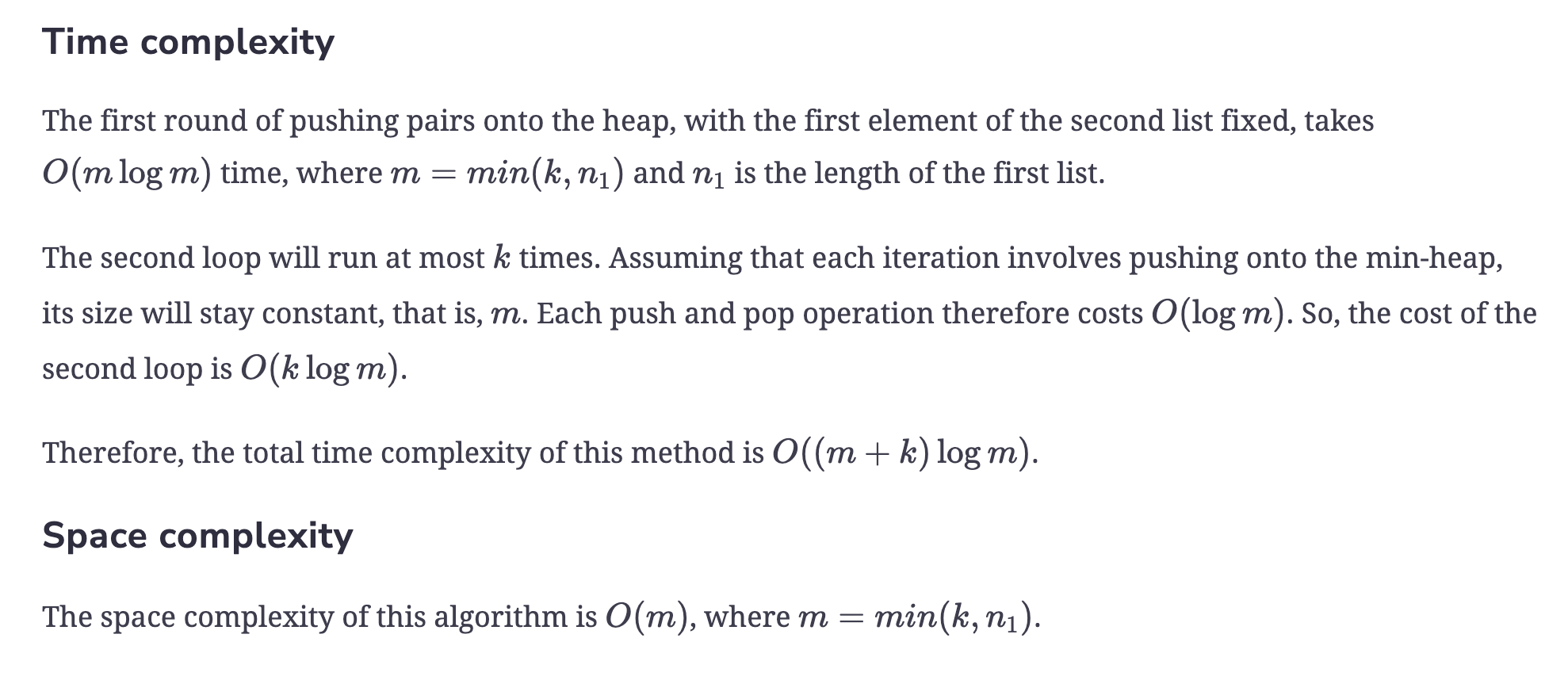Created
April 9, 2023 16:18
-
-
Save optimistiks/55a132260efe4c83e3a53a71e590cb6e to your computer and use it in GitHub Desktop.
Given two arrays and an integer k, find k pairs of numbers with the smallest sum so that in each pair, each array contributes one number to the pair.
This file contains hidden or bidirectional Unicode text that may be interpreted or compiled differently than what appears below. To review, open the file in an editor that reveals hidden Unicode characters.
Learn more about bidirectional Unicode characters
| export function kSmallestPairs(list1, list2, k) { | |
| let result = []; | |
| const heap = new MinHeap(); | |
| // we initialize our heap by pairing the first element of list2 | |
| // with every element of list1 | |
| // since our arrays are sorted, our heap will contain our first min pair | |
| for (let i = 0; i < list1.length; ++i) { | |
| const a = list1[i]; | |
| const b = list2[0]; | |
| heap.offer([a + b, i, 0]); | |
| } | |
| while (result.length < k && heap.size() > 0) { | |
| // pop a min pair from the heap | |
| const [_, index1, index2] = heap.poll(); | |
| result.push([list1[index1], list2[index2]]); | |
| // now we are going to push the next pair to the heap | |
| // the pair we've just popped is a minimum pair where list2[index2] is involved, | |
| // so now we need to consider list2[index2 + 1], and pair it with the same element from list1 | |
| const nextA = list1[index1]; | |
| const nextB = list2[index2 + 1]; | |
| if (nextA != null && nextB != null) { | |
| // handle cases when either index is out of the array bounds | |
| heap.offer([nextA + nextB, index1, index2 + 1]); | |
| } | |
| } | |
| // Your code will replace this placeholder return statement. | |
| return result; | |
| } |
Sign up for free
to join this conversation on GitHub.
Already have an account?
Sign in to comment
